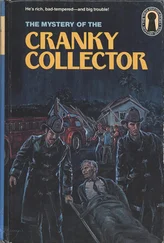The apartment above hers, the neighbor said, had been largely empty, used exclusively for lovers’ frolics. That’s how she put it: frolics .
“Are you certain?” Fomin asked.
“There’s no mistaking it,” said the translator. “You can hear everything. The couple would come over, sometimes at lunchtime, sometimes in the evening. And they’d have sex .” She spat the word. “Basically,” the woman went on, nodding, “around a year ago, a very sophisticated couple rented the place. He looked like a professor.” Fomin felt goose bumps tickling his skin, remembering the man in the wooden doll. “And she looked like a professor’s pet student. Much younger than him, very pretty. It was the usual story. An older man drawn to some fresh meat.” The translator snorted and sneered dismissively, hoping for some sort of reaction, but Fomin did not play along, just nodded calmly to encourage her to go ahead.
These sophisticated-looking people had made love in a very unsophisticated manner, moaning and screaming, bothering the downstairs neighbor (and the neighbors next door, she pointed out) as she tried to cook dinner, take a shower, or watch the evening news. The passionate struggles up above made the translator’s old Czech chandelier swing from the ceiling, and made her smoke nervously and ponder her fate as a single woman. But the funniest part was that she would sometimes run into them on the dimly lit stairs or in the elevator, and somehow she never could say a cross word to them. That’s the benefit of looking so sophisticated. It intimidates people. It wasn’t worth scolding them, anyway. Those two didn’t rendezvous so often, not more than once a week, and the moans from above were honestly easier to tolerate than, say, the young couple with the new baby who were always fighting and had already let their tub overflow into her place three times now. At least there was the excitement and suspense of secret passion with the people upstairs.
“But yesterday—” The neighbor frowned. “Everything started like usual. He arrived first, probably around four o’clock. I can tell it’s him by the heavy shoes. She wears these little heels. I heard his key turn in the lock and then the door open and shut. But she never turned up. No heels tapping on the stairs, no elevator stopping on the floor above me.”
Fomin laughed to himself. The secret romance had drawn the neighbor woman in a lot deeper than she wanted to admit.
“Maybe half an hour passed, I was already getting dinner ready, when the door opened and shut again. I thought the man had gotten tired of waiting and left, but no. It was somebody else going into that apartment.”
“You’re sure it wasn’t the woman?” Fomin asked.
“No!” the translator answered him excitedly. “I didn’t hear any noise on the stairs. And the elevator makes a terrible racket, you can’t miss it. No. It was somebody who came down from the floor above that one.”
“So that person had been waiting?” Fomin asked thoughtfully.
“Maybe.” She nodded and reached for her packet of cigarettes. “I heard the doorbell ring up there, a long ring, and then I think I heard a male voice.”
Fomin was giving the neighbor all his attention now.
She blew cigarette smoke out the small, open window, with its peeling paint and crooked hinges. She paused. “It sounded like he said—”
“Yes?” Fomin pressed.
The translator looked at Fomin again, and for the first time, she looked frightened.
“‘Open up! It’s me!’”
Masha held her mother in her arms, but her arms were clearly not enough. Maybe they were too short, or maybe Masha was simply the wrong person for the job. But there was nobody else. No Papa, no UnPapa. Natasha was slipping away, falling like Alice down the deep, dark rabbit hole. And Masha knew what she would find at the bottom: Papa’s death, and pain and terror, and her own aloneness. It had only been five minutes since Andrey’s call, but all that morning, as she’d telephoned every place she could think of, Masha had known. She’d felt it in her bones, the same way you can feel someone else breathing in a dark room: it was hopeless. He wasn’t with friends, he wasn’t with colleagues, he wasn’t in any hospital. It was too late. He was somewhere his wife’s gentle pleading could never reach him.
At long last, Masha realized what Belov, and his unobtrusive presence in her life, had meant to her. The perfectly brewed coffee in the mornings, the gentle gaze that restrained her mother’s urge to badger Masha with too many personal questions. Even his kindly therapist act, as she thought of it, had helped to keep her afloat. She had been genuinely and tightly attached to this big, gentle man. Her customary annoyance about him was gone.
Meanwhile Natasha’s whole body was trembling, despite the emergency double dose of Valocordin, and her fingers, digging painfully into Masha’s forearm, were cold as ice. Masha made a decision. She dialed the number of an old medical-school friend of her mother’s who worked a few blocks away, and tried to give her the short version of everything that had happened: her stepfather was dead, her mother was apparently suffering from nervous shock, and Masha didn’t know what to do.
“Masha!” the friend exclaimed, her voice trembling with worry. “Hold on, dear, I’ll be right there. You stay with her, all right? Get her into bed if you can.”
Masha hung up and turned to her mother.
“Let’s go, Mama. You’re going to go lie down. Nadya is coming soon.” Her mother looked right through her, and Masha felt a flash of terror. She grabbed Natasha by the hand and tried to stand up, pulling her mother after her. “Come on,” she repeated, gently. “I’m going to put you in bed.”
Natasha stood up, and with tiny steps, like a truck pulling a trailer, they inched out into the hallway. It occurred to Masha that it would be a mistake to take her mother into the room she had shared with her second husband, so she pushed open the door to her own room.
Natasha stopped short in the doorway, and her eyes came alive when they focused on something right in her line of vision. Masha craned her neck to get a glimpse of what her mother was staring at so intently, and swore to herself. Her room wasn’t a safe option, either. The black-and-white photo of her father regarded his wife and daughter from the opposite wall. He seemed more alive than both of them put together. The standoff lasted maybe ten seconds, until Natasha turned to her daughter and said, very quietly, “This is all your fault.” Then she clutched at her heart and, as if she were in a movie, slowly crumpled to the floor.
“Mama, what’s wrong? Is it your heart?” Masha shouted.
That same instant the doorbell rang, and Masha ran to answer it. She slipped on the rug and pulled the door open almost in midflight.
“Nadya!” She was no longer trying to act as if she were in control. Masha felt like she had shot back in time eleven years, and she was standing there, small and lost, over her father’s dead body. “There’s something wrong with Mama. I think it’s her heart!”
“All right, all right,” Nadya told her reassuringly and hurried inside. “Natasha!” Nadya squatted down on the floor next to her friend, and in one quick gesture took some sort of tablet out of her purse and slid it under Natasha’s tongue. She wrapped her long fingers around the patient’s wrist and felt her pulse. “Natasha, you need to be strong now. You need to pull yourself together, Natasha,” she was saying in a quiet, almost sing-song voice, while Masha stood by silently behind her and tried not to cry. “I’m going to give you a shot and bring you in to my clinic. My car’s outside. You’ll have a few days of rest. Masha can pack your things.”
Читать дальше












